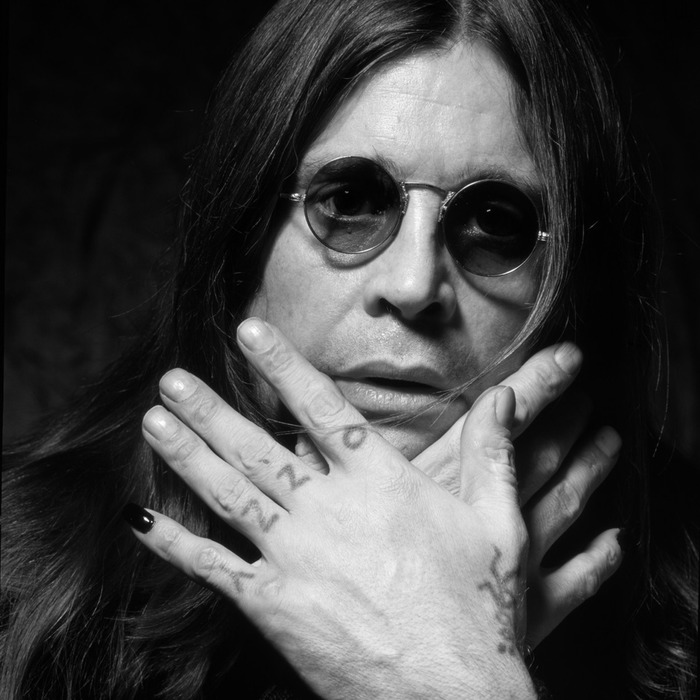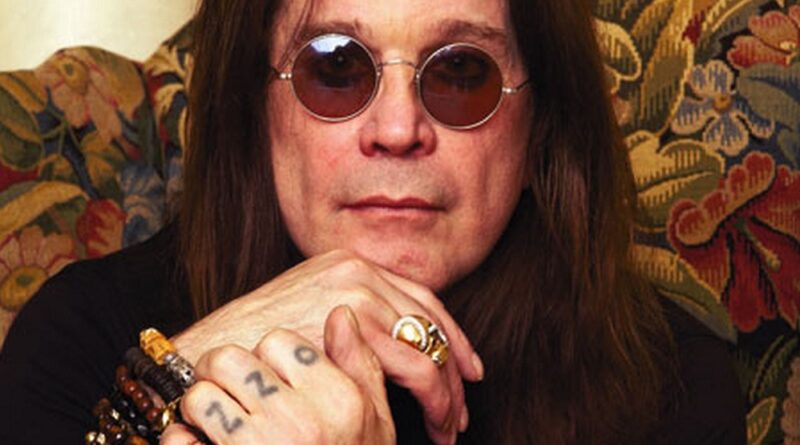Ozzy Osbourne dies at 76: Farewell to the Prince of Darkness and heavy metal legend
Ozzy Osbourne, often referred to as the “Prince of Darkness,” has left an indelible mark on the heavy metal genre, shaping its sound and culture in ways that resonate even today. Emerging from the gritty streets of Birmingham, England, he became the frontman of Black Sabbath, a band that is frequently credited with pioneering heavy metal music. Their self-titled debut album in 1970 introduced a darker, heavier sound that diverged from the prevailing rock trends of the time.
With haunting lyrics and ominous guitar riffs, Black Sabbath’s music encapsulated themes of despair, war, and the supernatural, laying the groundwork for countless bands that followed. Osbourne’s unique vocal style, characterized by its raw power and emotional depth, became a defining feature of the genre. The influence of Ozzy Osbourne extends beyond just his music; it encompasses his persona and the cultural phenomena that arose around him.
His theatrical stage presence, often marked by outrageous costumes and dramatic performances, helped to elevate heavy metal from mere music to a full-fledged spectacle. Osbourne’s antics, both on and off stage, contributed to a mystique that captivated fans and drew attention to the genre. His willingness to embrace controversy—whether through his infamous bat-biting incident or his candid discussions about mental health—has made him a figure of fascination and admiration.
As a result, Osbourne’s legacy is not merely one of musical innovation but also of cultural significance, influencing generations of musicians and fans alike.
Key Takeaways
- Ozzy Osbourne’s impact on heavy metal is undeniable, as he played a pivotal role in shaping the genre and influencing countless musicians.
- From his early days with Black Sabbath to his successful solo career, Ozzy Osbourne has left an indelible mark on the music industry.
- Fans and fellow musicians alike have paid tribute to Ozzy Osbourne, highlighting his lasting impact and influence on the heavy metal genre.
- Ozzy Osbourne’s persona and stage presence as the “Prince of Darkness” have contributed to his iconic status in the music world.
- Despite his battles with addiction and health issues, Ozzy Osbourne has triumphed and continues to inspire new generations with his enduring popularity and music.
Ozzy Osbourne’s Life and Career: From Black Sabbath to Solo Success
Born John Michael Osbourne on December 3, 1948, in Birmingham, England, Ozzy Osbourne’s early life was marked by hardship and struggle. Growing up in a working-class family, he faced numerous challenges, including bullying at school and a tumultuous home life. These experiences would later inform his songwriting and public persona.
In 1968, he joined Black Sabbath, which would become one of the most influential bands in rock history. The band’s self-titled debut album set the stage for a new musical direction, blending blues rock with dark themes and heavy instrumentation. Osbourne’s distinctive voice quickly became synonymous with the band’s sound, propelling them to international fame.
As Black Sabbath rose to prominence throughout the 1970s, so did Osbourne’s reputation as a rock star. However, this success came at a cost. The pressures of fame and the lifestyle associated with it led to significant personal struggles, including substance abuse issues that would plague him for decades.
In 1979, after a series of tumultuous years with Black Sabbath, Osbourne was fired from the band due to his erratic behavior and addiction problems. This marked a turning point in his career; rather than fading into obscurity, he embarked on a solo career that would see him achieve even greater success. His debut solo album, “Blizzard of Ozz,” released in 1980, featured iconic tracks like “Crazy Train” and “Mr.
Crowley,” showcasing his ability to reinvent himself while maintaining his heavy metal roots.
Remembering Ozzy Osbourne: Tributes and Reactions from Fans and Fellow Musicians

As news of Ozzy Osbourne’s passing reverberated through the music world, tributes poured in from fans and fellow musicians alike, highlighting the profound impact he had on their lives and careers. Social media platforms became a canvas for heartfelt messages celebrating his contributions to music and culture. Fans shared personal stories about how Osbourne’s music had provided solace during difficult times or inspired them to pursue their own artistic endeavors.
The outpouring of love and admiration underscored not only his status as a rock icon but also his role as a source of inspiration for countless individuals. Fellow musicians also took to various platforms to express their grief and gratitude for Osbourne’s influence. Artists from diverse genres acknowledged his pioneering spirit and the doors he opened for future generations of musicians.
Rock legends like Metallica’s James Hetfield and Guns N’ Roses’ Slash shared their memories of Osbourne, emphasizing how his fearless approach to music and performance had inspired them in their own careers. Even artists outside the heavy metal genre recognized his impact; pop stars and hip-hop artists alike paid homage to the man who had redefined what it meant to be a rock star. These tributes served as a testament to Osbourne’s far-reaching influence and the legacy he leaves behind.
Ozzy Osbourne’s Influence on the Heavy Metal Genre: How He Shaped the Sound of Rock Music
Ozzy Osbourne’s influence on heavy metal is profound and multifaceted, extending beyond his role as a vocalist to encompass his contributions as a songwriter and performer. His work with Black Sabbath established many of the genre’s foundational elements: heavy guitar riffs, dark lyrical themes, and an overall sense of theatricality that would become hallmarks of heavy metal music. The band’s innovative use of distortion and power chords created a sound that was heavier than anything that had come before it, paving the way for future bands like Judas Priest, Iron Maiden, and Slayer.
Osbourne’s solo career further solidified his status as a heavy metal icon. Albums like “Diary of a Madman” and “No More Tears” showcased not only his vocal prowess but also his ability to craft memorable melodies within the framework of heavy music. His collaborations with guitarists like Randy Rhoads introduced intricate solos and harmonies that elevated heavy metal guitar playing to new heights.
Rhoads’ virtuosic style complemented Osbourne’s voice perfectly, resulting in some of the most celebrated tracks in rock history. The combination of powerful vocals, intricate guitar work, and compelling songwriting established a template that many aspiring musicians would strive to emulate.
The Prince of Darkness: Exploring Ozzy Osbourne’s Persona and Stage Presence
Ozzy Osbourne’s persona as the “Prince of Darkness” is one of the most recognizable images in rock music history. This moniker encapsulates not only his musical style but also his larger-than-life personality and theatrical stage presence. From his early days with Black Sabbath to his solo performances, Osbourne has consistently embraced an image that blends elements of horror with rock ‘n’ roll bravado.
His penchant for dramatic costumes—often featuring leather, spikes, and dark colors—has contributed to an aura of mystique that captivates audiences. On stage, Osbourne’s performances are characterized by an unrestrained energy that draws fans into his world. His wild antics—such as biting the heads off bats or dousing himself in blood—have become legendary, often overshadowing even his musical achievements.
These moments have solidified his reputation as a provocateur within the music industry, challenging societal norms and pushing boundaries in ways that few artists dare to do. However, beneath this outrageous exterior lies a deeply introspective artist who has often used his platform to address personal struggles with mental health and addiction. This duality—of being both a larger-than-life figure and a vulnerable human being—has endeared him to fans who see their own struggles reflected in his music.
Ozzy Osbourne’s Battle with Addiction and Health Issues: A Look at His Struggles and Triumphs

Throughout his career, Ozzy Osbourne has faced significant challenges related to addiction and health issues that have shaped both his personal life and professional trajectory. His struggles with substance abuse began in earnest during his time with Black Sabbath, where the pressures of fame led him down a path of excess that included alcohol and drug use. These battles often resulted in erratic behavior that jeopardized not only his career but also his relationships with bandmates and loved ones.
In 1982, after years of turmoil, he entered rehab for the first time—a pivotal moment that marked the beginning of a long journey toward recovery. Despite numerous setbacks over the years—including relapses and health complications stemming from years of substance abuse—Osbourne has demonstrated remarkable resilience. His candidness about these struggles has resonated with fans who appreciate his honesty about mental health issues and addiction.
In recent years, he has faced additional health challenges, including Parkinson’s disease diagnosis in 2019, which has affected his mobility but not diminished his spirit or passion for music. Through it all, Osbourne has continued to create music and perform live, embodying the very essence of perseverance in the face of adversity.
Ozzy Osbourne’s Enduring Popularity: How His Music Continues to Inspire New Generations
Despite being in the industry for over five decades, Ozzy Osbourne’s popularity remains undiminished as new generations discover his music. Streaming platforms have played a significant role in introducing classic tracks like “Crazy Train” and “Iron Man” to younger audiences who may not have been exposed to heavy metal in its formative years. This resurgence has led to collaborations with contemporary artists across various genres who seek to tap into Osbourne’s legendary status while introducing him to their fanbases.
Moreover, Osbourne’s influence can be seen in modern heavy metal bands that cite him as an inspiration for their own sound and style. Artists such as Ghost and Bring Me The Horizon have drawn from his musical legacy while infusing their work with contemporary elements that resonate with today’s listeners. Festivals dedicated to rock and metal continue to feature him prominently on lineups, showcasing not only his enduring appeal but also the respect he commands within the industry.
As long as there are fans who appreciate powerful vocals paired with heavy instrumentation, Ozzy Osbourne’s music will continue to inspire new generations.
Farewell to a Legend: Reflecting on Ozzy Osbourne’s Impact on Music and Culture
As we reflect on Ozzy Osbourne’s life and career following his passing, it becomes clear that he was more than just a musician; he was a cultural icon whose impact transcended music itself. His contributions to heavy metal have shaped not only the sound but also the very identity of the genre. Through his innovative approach to songwriting and performance, he has inspired countless artists across various musical landscapes while leaving an indelible mark on popular culture.
Osbourne’s legacy is one of resilience—a testament to overcoming personal demons while remaining true to oneself as an artist. His willingness to confront difficult topics such as addiction and mental health has opened up conversations within both the music community and society at large. As fans continue to celebrate his life through tributes and remembrances, it is evident that Ozzy Osbourne will forever be remembered not just for his music but for the profound impact he had on generations of fans who found solace in his art.




